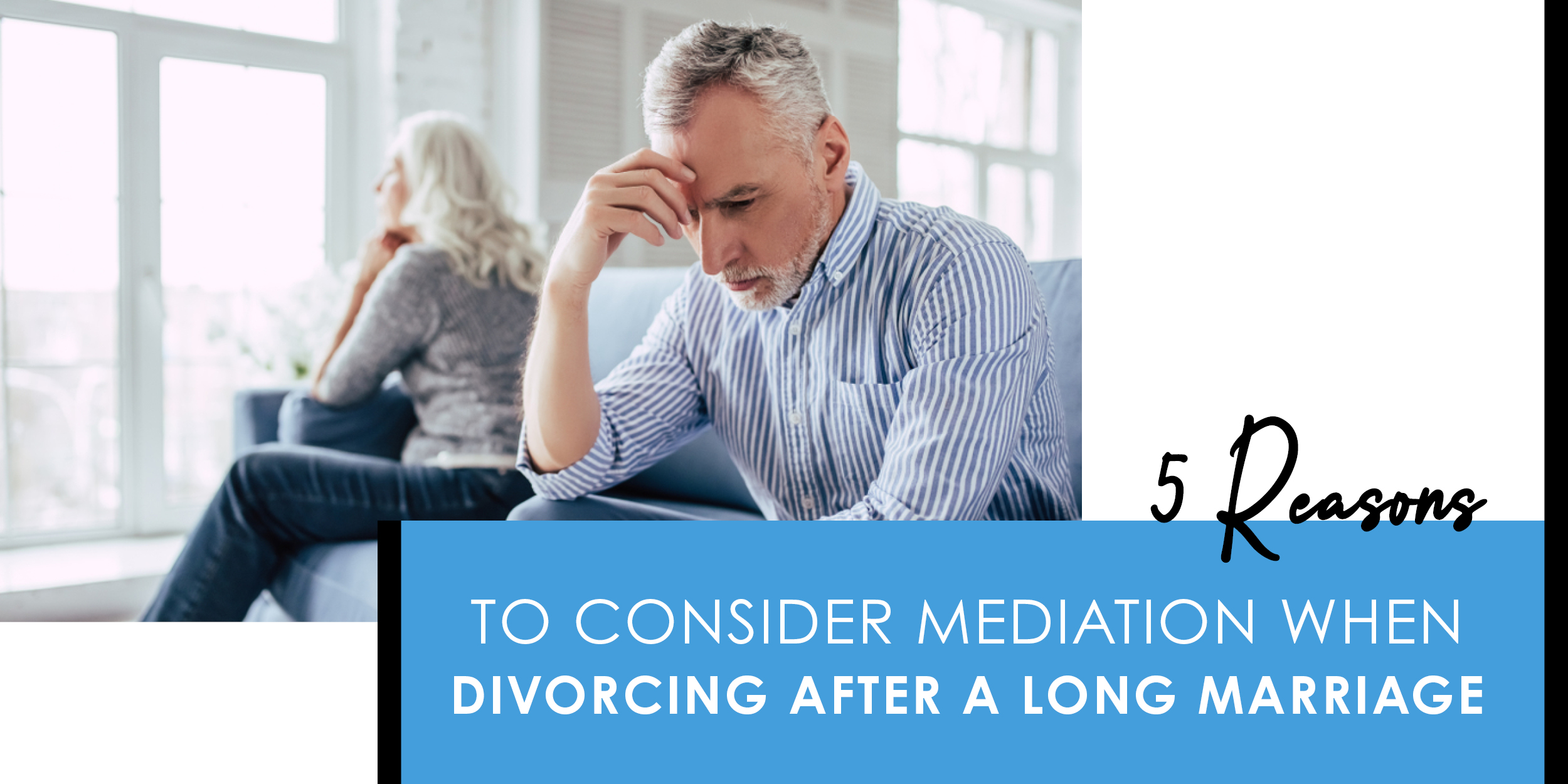5 Reasons to Consider Mediation When Divorcing After a Long Marriage
It’s hard when any marriage ends in divorce, but it can be especially difficult for married couples who are divorcing after a long marriage together. And with such a long life built together, there’s a lot more at stake than with a short-term marriage.
Involving attorneys and getting into litigation only draws things out and ends up costing more money, and as these kinds of divorces tend to happen later in life, time and money are typically not things anyone wants to waste.
If you’ve initiated the divorce process after a long-term marriage, you should consider alternative dispute resolutions options such as mediation to minimize the conflict, shorten the duration of the process, and save money on both sides.
If you’re still on the fence about it, here are five reasons to consider divorce mediation after a long marriage.
1. A Longer Marriage Means More Shared Assets (and Liabilities)
After ten or more years together, there’s no doubt you’ve integrated most aspects of your lives. You’ve likely bought real estate and cars together, opened joint credit accounts, and share bank accounts.
While you’ll still have some assets and liabilities that are your own from before your marriage, at a certain point, more will be shared than will be separate, which means there’s a lot of property to divide in the divorce.
Mediation can make this part easier, giving both parties the chance to have productive discussions about shared assets rather than being told by a judge what belongs to whom.
2. Alimony Structuring Changes After 10 Years
In some cases, the strategy used to determine alimony can change after ten years of marriage, since these are no longer considered “shorter-term” marriages. Because there is such little information out there about how to determine alimony, it can be quite a complicated process.
Working closely with a mediator who understands how these dynamics shift and can help you arrive at a mutually agreeable solution can be easier than going through litigation.
3. Social Security Benefits Play a Role
If you’re 62 or older when you divorce, you might be eligible to receive some Social Security benefits based on your ex’s income, making your overall Social Security benefits more robust than if you were collecting them on your own.
To qualify, you must be unmarried when you go to collect and your ex must be eligible for these benefits. The best part is that there is no change to the benefits your ex-spouse receives.
4. It Can Minimize Disruption to Long-Term Routines
After ten years of marriage, you may still have kids in the house that, by now, are quite used to their home routines. Shaking things up with a contentious divorce can create unnecessary chaos and discomfort in the house and their everyday lives, but meditation offers a more amicable way to settle things maturely and create a healthier environment without massive disruptions.
5. Considering Adult Children of Divorce
Even if you have adult children at the time of your divorce, this can be quite a shock to them to have their parents split, especially after a long run together. Mediation can also be easier on your adult children, sparing them from feeling like their parents are up against each other in litigation. Rather, mediation uses the strategies of productive communication guided by an unbiased third party to help the couple reach an agreeable and fair decision.
Natalie Baird is a Supreme Court Certified Family Law Mediator with years of experience helping divorcing couples throughout the greater Tampa area get through the process in a healthy way, whether through virtual or in-person mediation. To begin your divorce process after a long marriage and make it a bit easier on everyone, contact Natalie Baird Mediations to schedule a meditation today.

